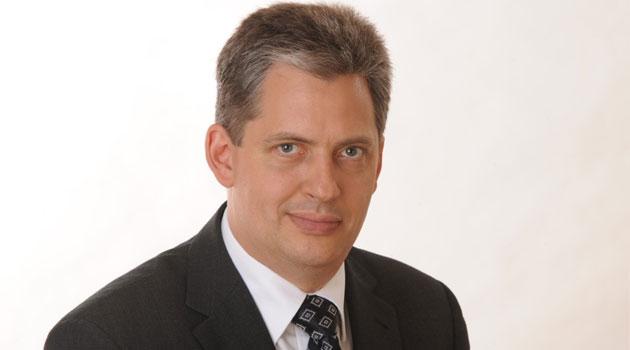Czech Human Rights Minister-designate: Populism won't resolve ghettos

Czech Senator Jiří Dienstbier (Czech Social Democratic Party – ČSSD) has said he would like to legislate the right of every child to a place in preschool, greater powers for the ombudsman, and the opportunity for gay and lesbian couples to adopt when he takes up the post of human rights minister. While in office, he intends to spend most of his time on the issue of social exclusion and has a plan for supervising the cohesion and effectiveness of state measures in that area.
Dienstbier made the remarks in an interview for the Czech News Agency. He said that he also intends to see to it that a law on social housing is adopted.
The senator will be in charge of the human rights agenda in the Sobotka cabinet and will also head its Legislative Council. He says the
combination of the two agendas is an advantage that will make it possible to more effectively connect the measures taken by state bodies.
The incoming minister considers the problem of expanding ghettos to be the most critical. "It’s not possible to take a populist approach and try to pretend that everything can be resolved within several months or even within a few years," said Dienstbier, who wants to coordinate the measures taken by various ministries on education, the fight against loan-sharking, and indebtedness.
Dienstbier also wants to contribute to the adoption of a law on social housing. He is planning to negotiate it with mayors.
"Social housing cannot be provided by any other entity than municipalities. They naturally are opposed to it. If they don’t receive the money to build and invest into social housing, they are incapable of meeting this obligation," Dienstbier said.
The incoming minister expects the negotiations on how to set the rules for social housing to be demanding. He could also meet opposition in the government with some of his other proposals.
Measures concerning equal opportunities for men and women or gays and lesbians could face resistance. Dienstbier, however, points out that even conservative politicians agree on some of his measures.
The coalition government’s agreement includes, for example, support for nursery schools so both parents in a family can work. "There are countries where the law guarantees every child a place in a preschool facility. I would like to lead the debate here about a similar legal measure. There could be agreement on it here," the incoming minister said.
Dienstbier also wants to open a discussion on the introduction of quotas into electoral law. "Even conservative parties will have a hard time defending the claim that women here are not as educated or qualified as men to serve in public office… While formal equality exists, it does not exist in practice – there is a need to review the causes of this and to look for measures that might equalize it," he believes.
Women make up 51 % of the Czech population, but there will only be three female members in the incoming 17-member government. In the lower house, women hold one-fifth of the seats.
Promoting opportunities for registered partners to adopt will probably not be easy. The proposed measures would make it possible for one partner to adopt the biological offspring of the other.
Many children in the Czech Republic live with either two fathers or two mothers. "These are situations that already exist. These people have to solve rather complex problems because of this," Dienstbier said.
The incoming minister says such a partner who is not a biological parent will not have a right to information about the other partner’s child in crisis situations – for example, if the child is in an accident. Should the child’s father or mother die, the partner does not have any legal relationship to the child, and even though such people raise and take care of their partners’ children, the children could end up in orphanages in the worst-case scenario following the death of their biological parents.
Dienstbier would also like to submit a bill to the government that would make it possible for the ombud to turn to the Constitutional Court when laws are broken. Currently this can be done by the President, by a group of at least 41 MPs or 17 Senators, by the Government, by a Regional Authority, or by an individual under certain circumstances.
"[Broader powers for the ombud] could move the protection of basic human rights forward here. There is not always the political will to address certain clashes between our legislation and our constitutional order, but the ombud does not have to have such inhibitions," Dienstbier believes.
The incoming minister says his very first step in office will be to abolish the exemption from the EU Charter enforced by former Czech President Václav Klaus. Dienstbier believes the exemption is unjustified and that Czech citizens enjoy fewer protections in the areas of human rights, especially social rights, as a result of it.
The establishment of the office of a human rights minister and Dienstbier’s appointment to the post has been enthusiastically welcomed by many activists. The senator, however, is counting on some of their hopes being disappointed.
"It is practically certain that not all expectations will be met. However, the difference is that there is genuine will here on the part of the Government to be involved with this issue. Far from all human rights protection topics enjoy public support here, but there is a need to open up and lead debate on those topics," Dienstbier said.
The minister-designate added that Czech society once rejected the idea of registered partnerships, but attitudes on the issue were changed through discussion. "We must proceed that way in other areas as well, even though it will be unpopular at first," he said.